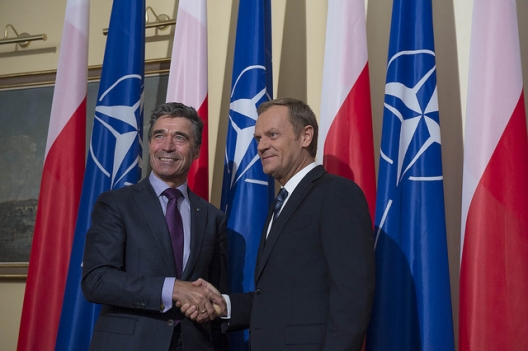
There is no need to pretend: Those members who have no NATO bases are simply a gray area of second-class membership. What has become clear is that not all NATO members are equal. First-class members — Britain, Germany, Italy — are those everyone knows would be immediately defended by NATO forces if attacked. Second-class members like Poland and the Baltics would most likely be ravaged for weeks or months before NATO forces made an appearance.
Of course, the first-class members would never admit as much. Instead, they play down the risk. Hubert Wetzel, a columnist for the newspaper Süddeutsche Zeitung, wrote that stationing troops in Poland and the Baltics to check Russia was “unnecessary” — a rather careless characterization, given Russia’s recent actions against Ukraine.
Mr. Wetzel added that such a move could also surprise and provoke Russia, the original reason for keeping NATO troops out of these countries. But they are already NATO members; why would troops signal anything other than the commitments that already exist on paper?
But Mr. Wetzel makes a weightier argument, too. NATO has already agreed with Russia that there would be no NATO bases in new member states, and agreements should be honored. Otherwise, the balance between partners will be disrupted.
Fair enough. But Russia has already upset that balance by breaking the fundamental assumption of peaceful coexistence between states: that borders and international law are supreme. It has created a dangerous precedent, and even a new type of war, a model to which any future aggressor can turn. The incentive to do so will be greater the more tolerance there is toward Russia’s actions. NATO was created to maintain the very order that Russia has just disrupted. President Vladimir V. Putin has undermined the very meaning of the alliance. . . .
Fifteen years have passed since Poland joined NATO, and 10 years for the Baltics — a very long time to maintain a “geopolitical quarantine” as a concession to the former Soviet Union.
Instead, German leaders continue to talk about “de-escalation” of the conflict — a word that, in its present context, sounds more like the infamous “appeasement” of Munich in 1938. Then, the empty words of Western politicians enabled a single lunatic from Germany to unleash the catastrophe of World War II. This time, do not send us words, but soldiers.
Slawomir Sierakowski is a sociologist, a founder of the Krytyka Polityczna movement and the director of the Institute for Advanced Study in Warsaw. This article was translated by Maria Blackwood from the Polish.
Image: Secretary General Anders Fogh Rasmussen and Polish Prime Minister Donald Tusk, May 8, 2014 (photo: NATO)
